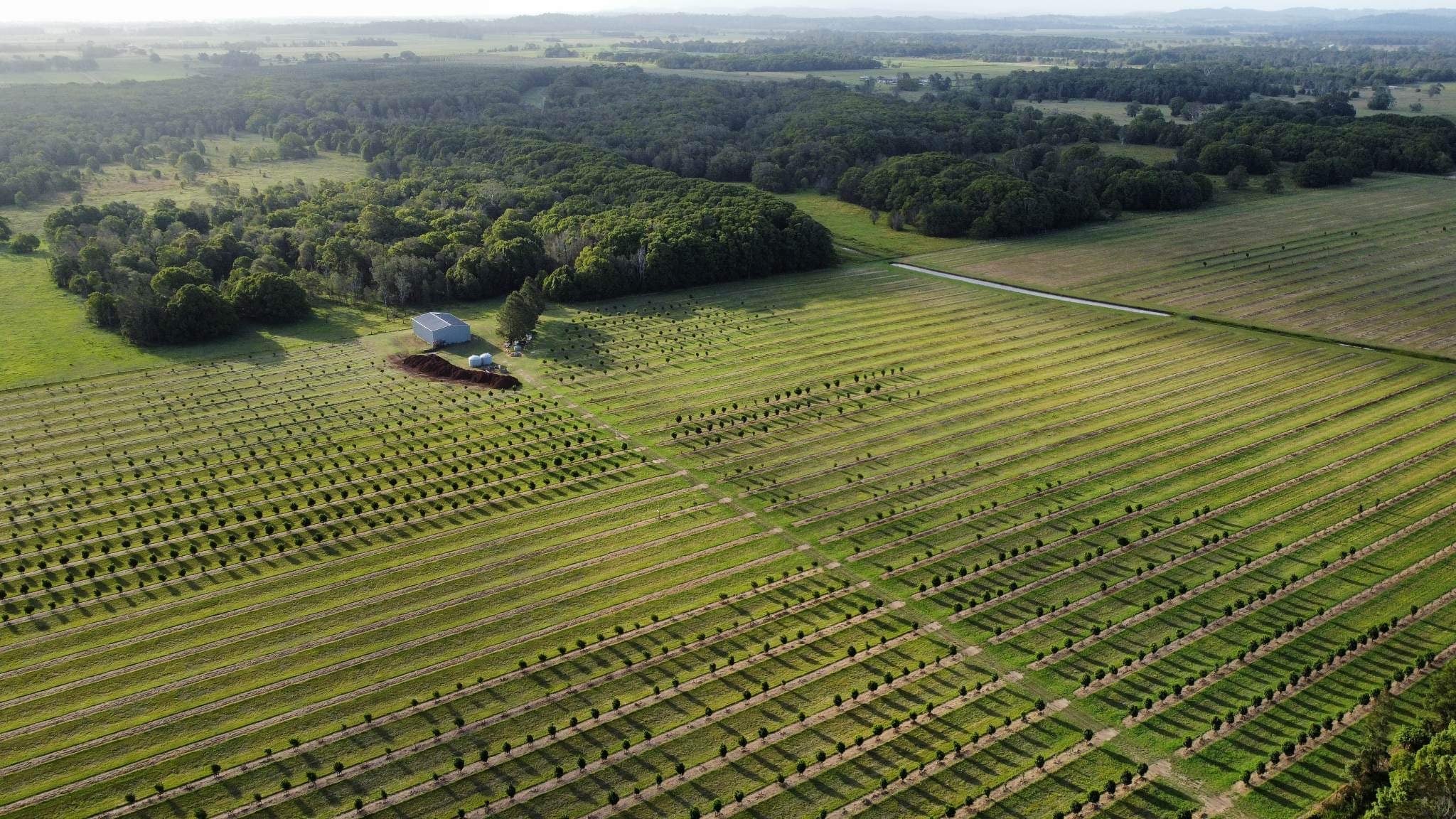
ENVIRONMENT
ENVIRONMENT
At Gondwana Macadamias we strive to be responsible Custodians of the Land on which we live, farm, and play.
We strive for sustainable best practices in orchard management. We realise as we grow soil health and sequester organic carbon, we optimise water use efficiency. Improving not only the health and fertility of our farmland and enterprise, but the lives of those we touch, the surrounding community, and the ecosystem at large.
We wish to acknowledge the Traditional Owners of Country, and recognise the continuing connection to land, water and community. We pay our respects to First Nations Leaders, past, present and future.
CONSERVATION
Whether it’s returning areas of our land to endemic rainforest of The Big Scrub or our regeneration work around the creeks and waterways that encroach on our farms. Setting aside land to The Macadamia Conservation Trust, to create a living genetic museum with the Macadamia Tetraphylla Arboretum. Conservation is at the heart of our core business. Giving back to the Land, paying forward for the future.
INTERGRATED PEST MANAGEMENT
Biological control measures, encouraging spiders and native bird life. Inter row planting, to create homes and food for pollinators and predatory insects, all play enormous roles in our IPM program. Trichogramma wasps are used to control Nut Borer, rather than chemicals, throughout the season.
The orchard is continually monitored by Pest Scouts, to ensure any spraying that needs to be done, is targeted at Orchard hot spots. We strive to use softest chemicals available, target pest insects, and minimise impact on spiders, beneficial insects and our native bee populations.
Located at headland Tuckean Wetland system, we respect our impact to birdlife, wildlife, and aquatic populations.
SOIL HEALTH
At Gondwana Macadamias Organic waste is, returned to farm with manures and bio enhanced compost.
Ways we actively minimise our use of chemical fertilisers:
- Multispecies planted in interrow, not only home for beneficial insects, also creates a microclimate and wind protection for young plant establishment.
- Any mowing for best orchard practise, is returned under the tree line with side throw slasher or mower to provide in situ composting, and weed supression. Lowering our reliance on herbicide.
- In event herbicide is used, Fulvic acid is added, to feed and stimulate soil biota, and assist with residual breakdown.
- Both farms are mapped with GPS technology. Where needed rows are laser levelled and mounded, waterways installed to encourage slow water movement across the landscape.
- Rows are prepared well in advance with green manure crops and biologically enhanced compost. Soil nutrition needs are identified and addressed. All are monitored regularly with soil, leaf and microbe testing.


WATER MANAGEMENT
At Gondwana Macadamias we consider water, soil and sunlight and people, our most precious resources.
- Prior to the irrigation instalment, extensive testing was undertaken to investigate potential environmental impact.
- Secondly water flow and quality.
- Water use is licenced, electronically monitored and recorded in accordance with State Legislation.
- Small tree deflectors on sprinklers, currently target water at root zone, and can be removed as the tree and root mass mature.
- Soil moisture probes, electronic controls and weather stations maximise water use efficiency, and capture valuable data.
WASTE MANAGEMENT
- Prunings, nut husks, and organic farm waste are mulched or composted on site. Then returned to the orchard soil as biostimulant.
- Nursery pots from new plantings are recycled along with soft plastics.
- Cardboard is composted.
ENERGY CONSERVATION
- Dungarubba shed and workshop is 100 percent solar powered.
- Variable speed drive pumps are installed on the irrigation system.
- Both farms are well equipped to minimise machinery movement between properties.








